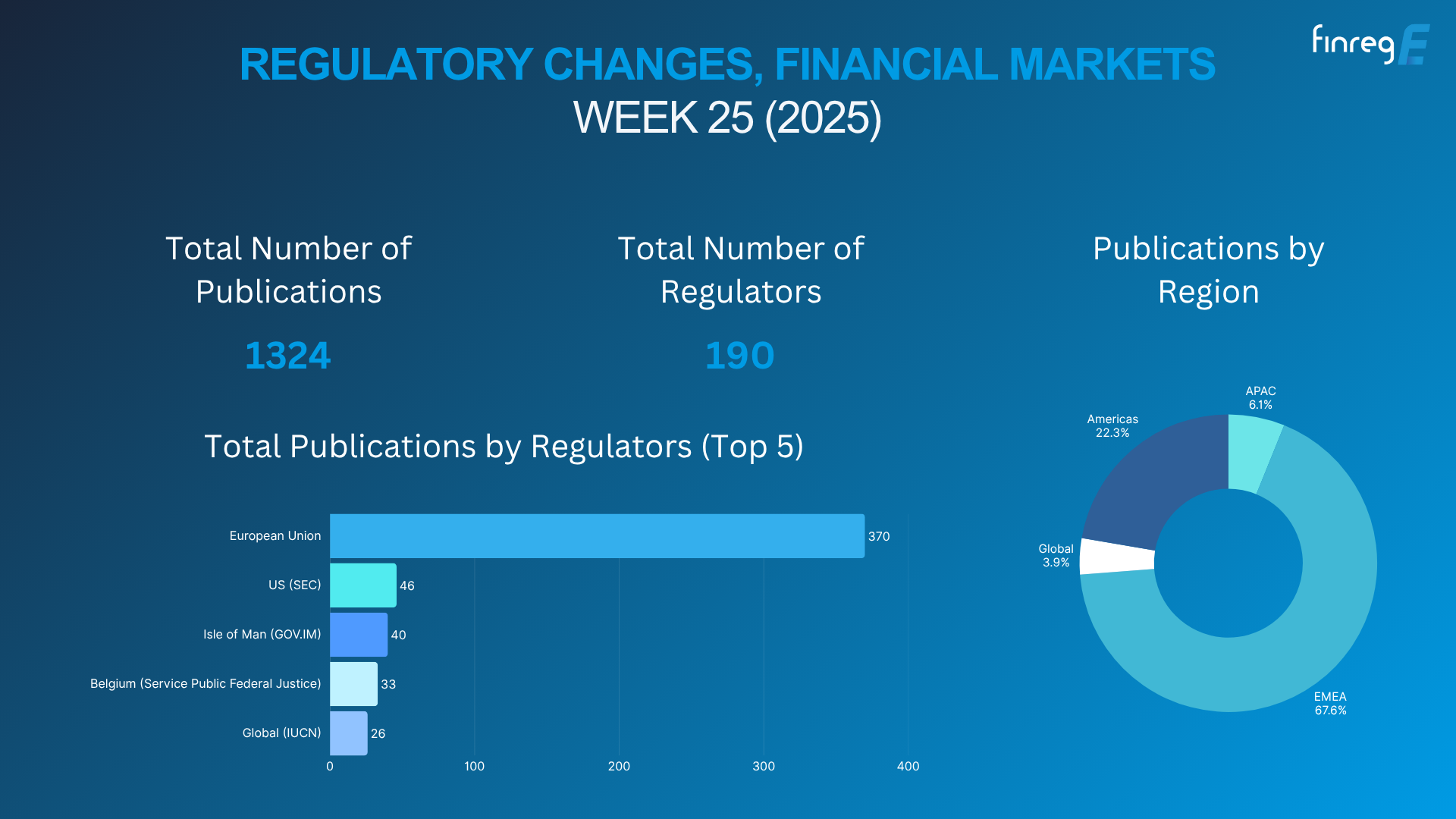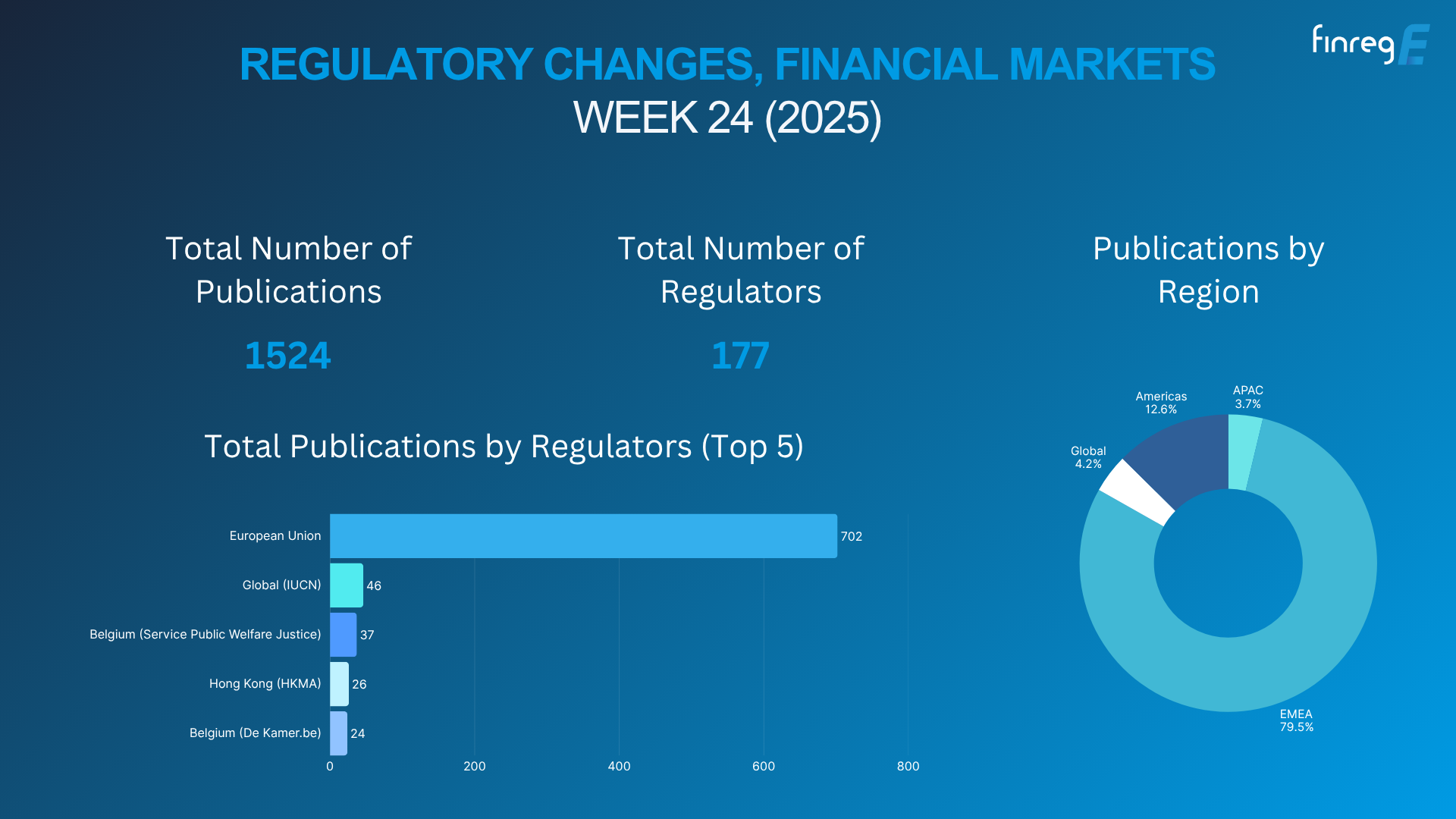Recent developments indicate that financial regulation is becoming more complex and rigorous, and compliance could demand more time and resources from financial institutions.
Between sustainability initiatives—which the UK government reaffirmed at the COP26—a need to protect consumer interests and drives to reduce money laundering schemes, regulators are demanding more transparency from financial firms.
However, this presents a significant problem for these firms because they have to find a way to capture the latest updates on regulatory law while discovering new avenues for productivity and efficiency.
If financial institutions must follow best practices, prevent costly violations, and maintain stakeholder confidence, they need to optimise compliance procedures with RegTech solutions, such as a Reg Tracker.
If used correctly, these solutions can help optimise compliance and regulatory management.
How to optimise compliance and regulatory management with a Reg Tracker
Reduce the complexities of cross-border regulation
Cross-border regulation continues to be a major hurdle for most organisations in the UK.
Several exogenous shocks, such as Brexit and COVID-19, have triggered substantial changes in the international regulatory framework, making compliance far more complex and demanding than it has been in previous years.
Obtaining regulatory updates and understanding how they affect company operations takes time and resources to understand. This drives up the cost of regulation, turning it into a far more complicated process than it need be.
To work around this problem, firms operating in multiple countries must execute a strategic, comprehensive assessment in regulatory policy risk management and leverage the findings to develop a centralised process for assessing future regulatory demands.
This is where regulatory tracking solutions become helpful tools.
With machine learning and AI integrated into the process, these platforms can obtain the latest updates from regulatory institutions across different regions, streamlining a critical process and increasing an organisation’s ability to adapt to the latest regulatory updates.
Responding to compliance updates
Mitigating compliance risk management has never been more important.
Regulatory requirements and industry pressure call for increased response to the latest regulatory updates.
This challenge comes when financial institutions are short on resources and must be more meticulous in resource management due to high costs.
Furthermore, capturing and analysing vast amounts of regulatory data—needed for compliance purposes—is a time-consuming process that could delay an organisation’s ability to respond to the latest developments.
For instance, financial institutions face difficulty covering sustainability, anti-money laundering or counter-terrorism regulatory updates.
Regulatory tracking can optimise this process by sending updates from regulatory institutions. Financial firms can leverage this technology to improve their response to compliance updates and optimise the entire process.
Streamline compliance and regulatory management
Most financial institutions already have processes for mitigating risk, but there is a need to strengthen risk governance and management practices even more.
For most finance firms, regulatory processes tend to be time-consuming and disorganised. However, they must streamline and centralise regulatory operations.
The need for a streamlined, holistic approach to regulation is driven by regulators who are passing updates more frequently and becoming more stringent on firms who miss these updates.
The solution is to streamline risk governance and culture; financial organisations must streamline and centralise financial regulation, which requires a change in strategy and a significant upgrade in platforms used to facilitate compliance.
RegTech platforms allow organisations to streamline their approach to compliance.
Regulatory tracking solutions can help streamline and reorganise compliance management to make it more responsive and efficient.
By completing the essential steps, such as scanning and finding the latest updates, regulatory teams can redirect resources towards implementing updates, mitigating compliance risks, and strengthening risk governance.
Creating an agile regulatory process with a reg tracker
In a rapidly changing regulatory environment, financial institutions have to find a way to optimise compliance and regulatory management.
A Reg Tracker is one of several Regtech solutions that can still make a significant difference when optimising regulation management by scanning for updates from different institutions worldwide.
By leveraging this platform, most organisations will have a much easier time establishing an agile regulatory process that can easily account for the latest updates.
A more agile, responsive regulatory process can ensure that financial institutions follow best practices, abide by the latest updates, and avoid harmful fines.





